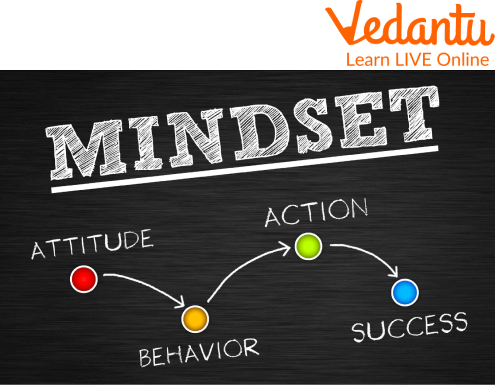




How to Identify and Compare Attributes in Maths Problems
Most concerned parents take an interest in their kids' education because they want them to grow up successful. They meet with their kid’s instructors to discuss homework and ensure it is finished on time. Parents play the role of learning coaches for their children in online schools. Academic learning only makes up a small portion of a child's education. In my opinion, developing good traits is crucial. In this article, we will see the positive character traits for students and the qualities a child should have.
Character Traits for Kids
To begin with, a character trait is a phrase used to describe an individual's values and views. That personality is a reflection of those qualities. This list can help you identify them and work on them with your child if you're concerned about what type of characteristics will have a positive and long-lasting effect on them. Below is the list of good qualities of a child:

Character Trait
Honesty: A child cannot develop the virtue of honesty as a personal quality until he or she is young. The first step is to avoid lying, and honesty later proves to make them more dependable, accountable, ethical, and morally strong people. It aids in their ability to distinguish between right and bad and to only align their beliefs with certain and proper things. You may teach your child to be honest by explaining the consequences of lying and showing them that you value their honesty.
Responsible: Start with the fundamentals, such as taking responsibility for their school work and studies. Being responsible is the best virtue a person can possess, and it will cause others to respect and value them. They will benefit from being responsible at every stage of their lives.
Dreaming: Encourage your kid to have great, aspirational dreams. Let his dreams and imaginations soar. Lend a hand as he sets attainable objectives and focuses on realising his aspirations.
Graciousness: Teach your children to appreciate what they have and to be thankful for everything. In addition to thanking God for all of his favours, encourage children to build a thankfulness jar and encourage them to donate.
Positive Character Traits for Students
A good student is someone who does more than just get good grades. It denotes having:
A desire to study
A desire for learning
A desire to advance and improve academically.
What Qualities and Practices Characterise an Excellent Learner?

Mindset of an Excellent Learner
An Effective Student Has a Growth Mindset: According to Dweck's research, even introducing this idea will change their learning. She cites research to support her claim that adopting a growth mindset alters neural pathways to promote better learning growth. You must follow up when your kid says, "I can't do this yet.
Good Students are Organised: High school students can study nine disciplines, have nine teachers, and have nine expectations, except for highly organised children who thrive in those conditions.
An Excellent Student Sets Goals: Setting goals directs a student's attention away from distractions and towards particular actions and knowledge. According to research, little goals are much more productive than big ones.
A student is more likely to succeed if they can divide a large objective into manageable chunks, such as solving a challenging problem, coming up with a novel idea, or getting a higher grade.
Consistent and Persistent Students are Good Students: Learning happens gradually and repeatedly. Consider the procedure we underwent when learning to read. There were stages, from properly reading a book to understanding phonetics, letters, and years of practice before fluency.
An Excellent Pupil Values Education: Finally, a youngster must value education to succeed in school. Studies demonstrate that children are more likely to respect education and prosper in homes with books, parents actively studying, and other educational resources.
How Can Character Strengths Be Taught to Children?
As a parent, you have various resources and chances to develop your child's character. The neighbourhood, school, family, and a child's unique temperament, experiences, and choices, all influence how they develop as people. See how your child develops into a person of integrity and character by implementing the following strategies.
Be Exemplary: You must always act and speak in a way that will positively influence your children because they will imitate you. Your children will notice and be inspired to develop healthy and positive attributes if you demonstrate them in your daily actions.
Utilise Teachable Occasions To Develop Your Character: A teachable moment is an opportunity to share insightful information about a subject that has yet to capture your child's interest. For instance, you can take advantage of a child's dishonesty to teach them about truth and honesty.
Describe Incidents From Literature and Real Life: Parents and grandparents taught moral teachings even before there were books by recounting personal experiences, telling tales, and drawing inspiration from their environment. These activities can aid children in recognising right from wrong.
Ensure Practice Opportunities: Before character traits become second nature to children, they must be put into practice. To truly understand the meaning of character traits, they require practical experience.
Summary
We are giving the best of ourselves to children just like it does to adults. This gives a sense of competence, well-being, and self-worth that can develop over time. Character strengths are flexible even though they are similar to innate traits. Children's strengths are developed in large part by their home environment. They will grow self-assured, resilient, and well-rounded.
They may be developed, taught, and stretched to become stronger. Young children's most prevalent character traits are love, generosity, creativity, curiosity, and humour. Young children's welfare is correlated with love, enthusiasm, and hope, all of which can be fostered by happy parent-child interactions.
FAQs on Analysing Attributes: Definitions, Examples & Applications
1. What are positive attributes or character traits in a child?
Positive attributes, or character traits, are the beneficial personal qualities that shape a child's values, thoughts, and actions. They are crucial for developing a healthy sense of self-worth and confidence. These can be grouped into different categories, such as:
- Interpersonal traits: These include kindness, leadership, empathy, and reliability in their interactions with others.
- Intellectual traits: Qualities like being innovative, thoughtful, responsible, and organised contribute to their learning journey.
- Emotional traits: Traits such as bravery, optimism, calmness, and a sense of humour help a child navigate life's challenges.
2. What are some examples of key character traits to nurture in a child?
Nurturing specific character traits from a young age helps a child build a strong moral foundation. Key examples include:
- Honesty: This is the foundation of trust and integrity. Teaching a child to be truthful helps them distinguish right from wrong and become dependable.
- Responsibility: This starts with simple things like managing their own schoolwork and chores. Being responsible helps them earn respect and is a valuable skill for all stages of life.
- Curiosity and Imagination: Encouraging a child to dream, ask questions, and imagine possibilities fuels their creativity and drive. It helps them set goals and work towards achieving them.
3. How can parents effectively teach character strengths to their children?
Parents play a vital role in shaping a child's character. Some effective strategies include:
- Being an Exemplary Role Model: Children naturally imitate the adults around them. By consistently demonstrating positive traits like honesty, kindness, and respect in your own actions, you provide a powerful example for them to follow.
- Using Teachable Moments: Everyday situations offer opportunities to teach values. For instance, if a child is dishonest, it can be used as a moment to discuss the importance of truthfulness and trust.
- Sharing Stories: Use stories from books, real-life incidents, or family history to illustrate moral lessons and help children understand the difference between right and wrong in a relatable way.
4. How does having a 'growth mindset' contribute to a child's success as a learner?
A growth mindset is the belief that intelligence and abilities can be developed through dedication and hard work. This is a crucial attribute for a successful learner because it fosters resilience. A child with a growth mindset sees challenges not as failures but as opportunities to learn and improve. Instead of saying, "I can't do it," they learn to say, "I can't do it yet." This perspective encourages persistence, goal-setting, and ultimately leads to better learning outcomes and stronger neural development.
5. What are some practical, kid-friendly activities for building character?
Engaging children in simple, consistent activities can effectively support their character development. Some kid-friendly ideas include:
- Reading and Discussing Moral Stories: Pick books or tell stories that feature characters making ethical choices and discuss the outcomes.
- Practising Acts of Kindness: Encourage and participate in small acts of kindness, like helping a neighbour, sharing toys, or making a card for a family member.
- Using Virtue-Vice Puzzles: Create simple word games or charts that help children identify and contrast positive traits (virtues) like honesty with negative ones (vices) like dishonesty.
6. Why is it more effective to focus on developing a child's strengths rather than only correcting their flaws?
Focusing on developing a child's inherent strengths, such as their creativity, kindness, or curiosity, builds a strong foundation of competence and self-worth. This positive approach empowers them and fosters resilience. While guidance on flaws is necessary, an overemphasis on correction can lead to a negative self-image. Nurturing what they are naturally good at gives them the confidence and well-being needed to develop into well-rounded individuals who can manage their weaknesses more effectively.
7. What are the 'Big Five' personality traits and how do they appear in children?
The 'Big Five' is a widely recognised psychological model that describes the core dimensions of personality. In children, these traits can be observed as general tendencies:
- Openness to Experience: How curious and imaginative a child is versus being cautious and consistent.
- Conscientiousness: How organised, disciplined, and dependable a child is, as opposed to being more easy-going or careless.
- Extraversion: How sociable, energetic, and talkative a child is, compared to being more solitary and reserved.
- Agreeableness: How compassionate, kind, and cooperative a child tends to be with others.
- Neuroticism (or Emotional Stability): How prone a child is to negative emotions like anxiety and sadness versus being calm and emotionally stable.























